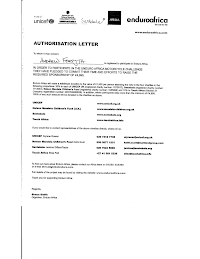Dear Andrew,
Thank you for getting in touch and thank you so much for taking part in Enduro Africa. The ride is a wonderful challenge; I was on it last year and am sure you will have a fantastic time!
In terms of the economic crisis it because of this that charities, such as UNICEF, need even more support. With people across the globe loosing jobs this puts more pressure on families. Children may have to drop out of school because their parents can't afford the fees/books/uniform. Children themselves may be forced into work to support their families. With less house hold income families may have to reduce the amount of meals they are able to eat a day. They may also have to buy cheaper food which is not as nutritious and can lead to further health problems. There are also the issues surrounding medication with the cost of medicines rising.
UNICEF is constantly monitoring the situation of children on the ground in over 150 countries and territories. Current assessments are paying particular attention to the unfolding impacts the financial crisis is having on various aspects of children's lives, to see how we can adjust and augment our programming and support in areas such as health, nutrition, water and sanitation, HIV/AIDS, education and child protection. For already vulnerable families, humanitarian assistance will also play a particularly important role in UNICEF operations. While information on the impacts of the financial crisis is still being built, the organizational response to the recent food price increases gives an example of possible future actions. As a result of these price increases, UNICEF identified 45 countries where children were at severe risk and allocated over $50 million of our resources towards programmes to provide an immediate response to the crisis and enhance nutritional security.
UNICEF is also conducting economic and social policy research on the crisis, advocating for policy changes to protect children and providing governments with upstream policy advice and technical assistance. A key element of this work is the Multiple Indicator Cluster Surveys (MICS), in which UNICEF works with over 50 countries to fill data gaps in monitoring the situation of women and children. We are also working with national governments to ensure that budgets are child-friendly and that children are offered social protection to help ensure that their well-being is protected as internal and external financial flows become threatened. Further, with the full impacts of the crisis on children and possible policy responses still uncertain, UNICEF is conducting research on the crisis with partners to build a stronger knowledge base for informing upstream policy responses and implementing efficient programming. These research projects are underway at global, regional and country levels, resulting in various conferences and research products in the coming year.
Do let me know if you need any further information or assistance with your fundraising. UNICEF receives no funding from the UN; we rely entirely on voluntary donations so your support through Enduro Africa really will make a difference to the children in South Africa [emphasis added].
Very best wishes and I look forward to meeting you in October.
Kind Regards
Alyrene Rosser
Fundraising Initiatives Officer
_________________________________
www.unicef.org.uk /AlyreneR @ unicef.org.uk
__________________________________________
Tel: + 44 (0)207 375 6138 Fax: + 44 (0)207 250 1733
UNICEF UK , 30a Great Sutton Street , London EC1V 0DU



